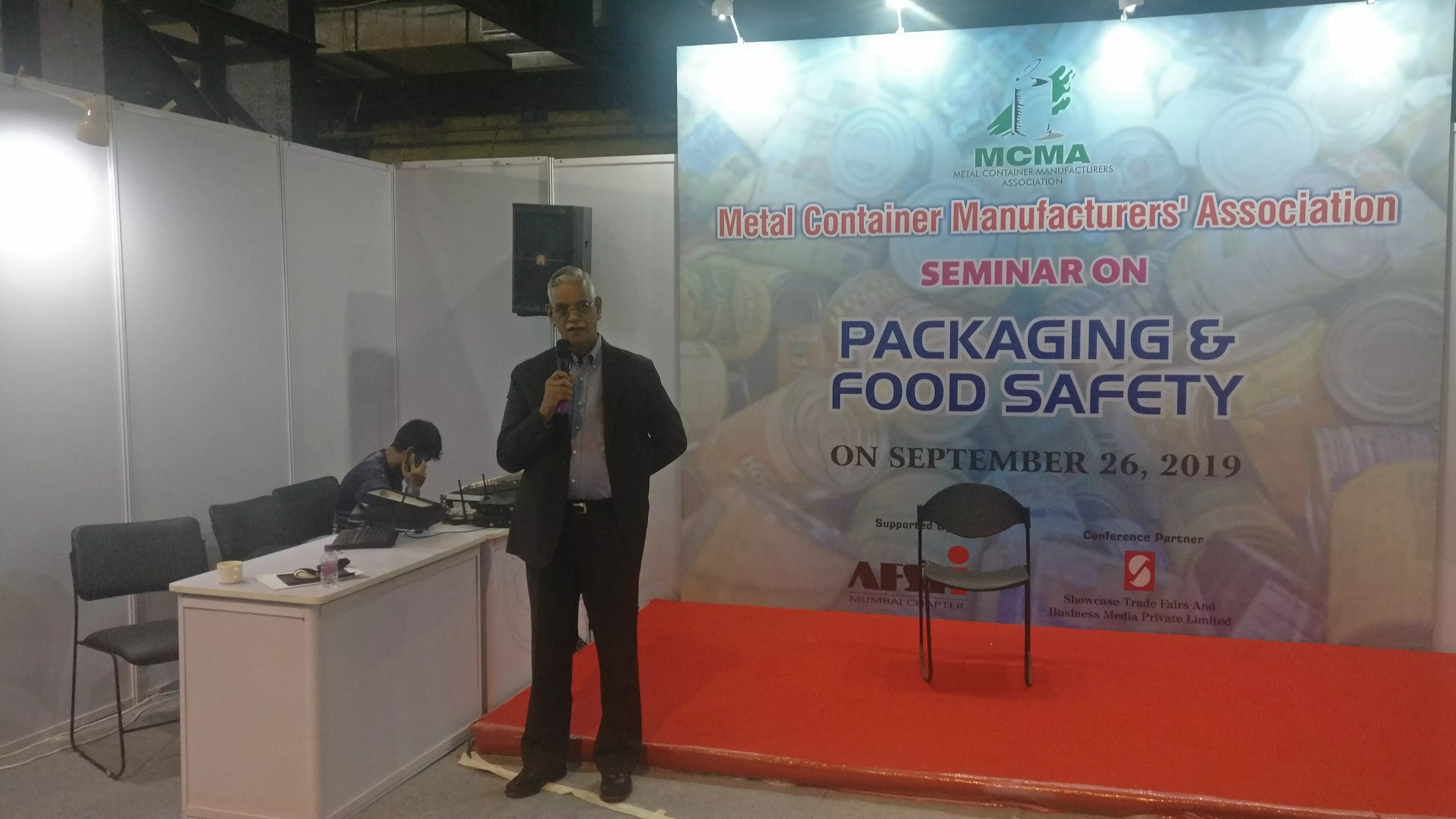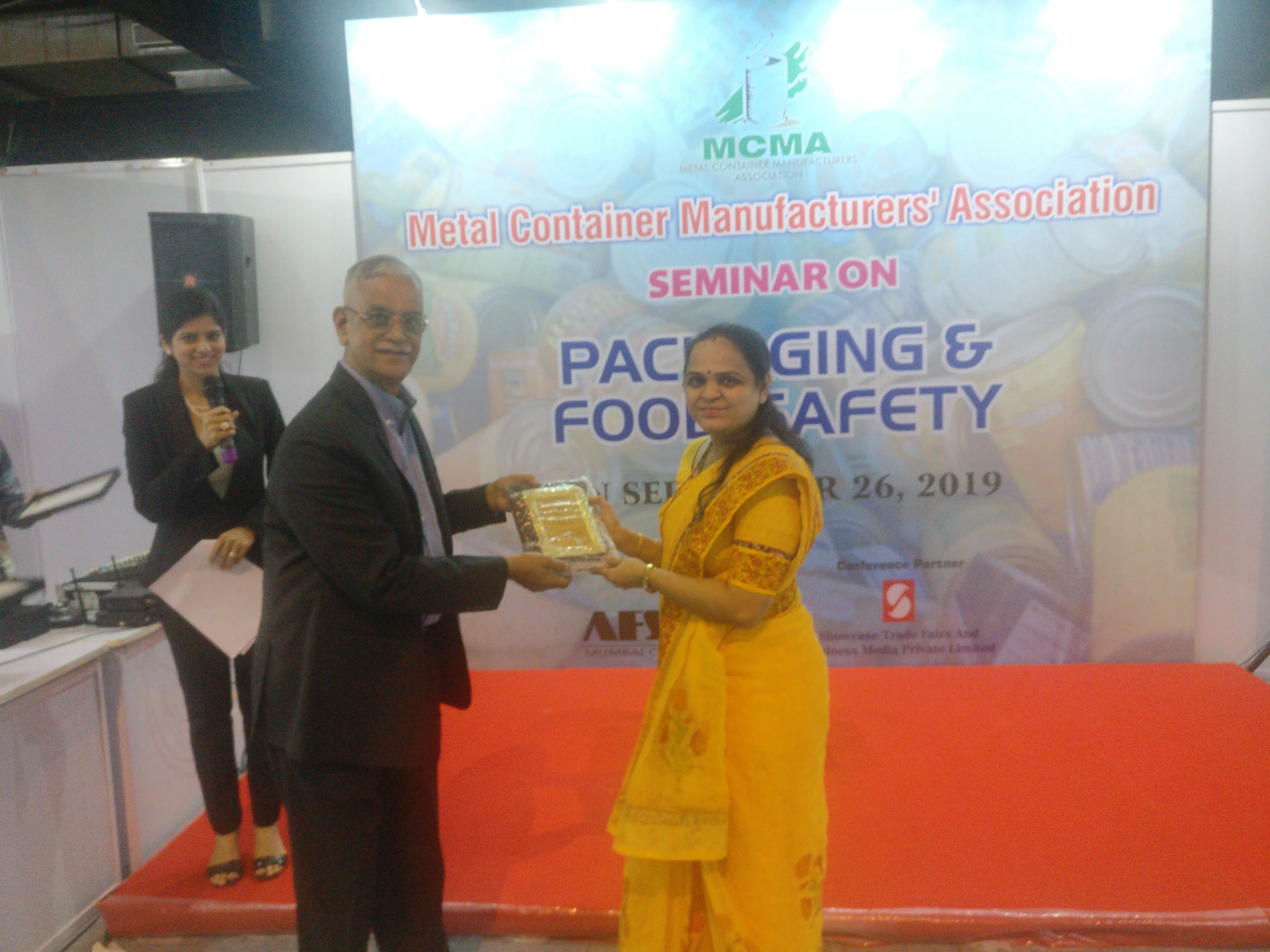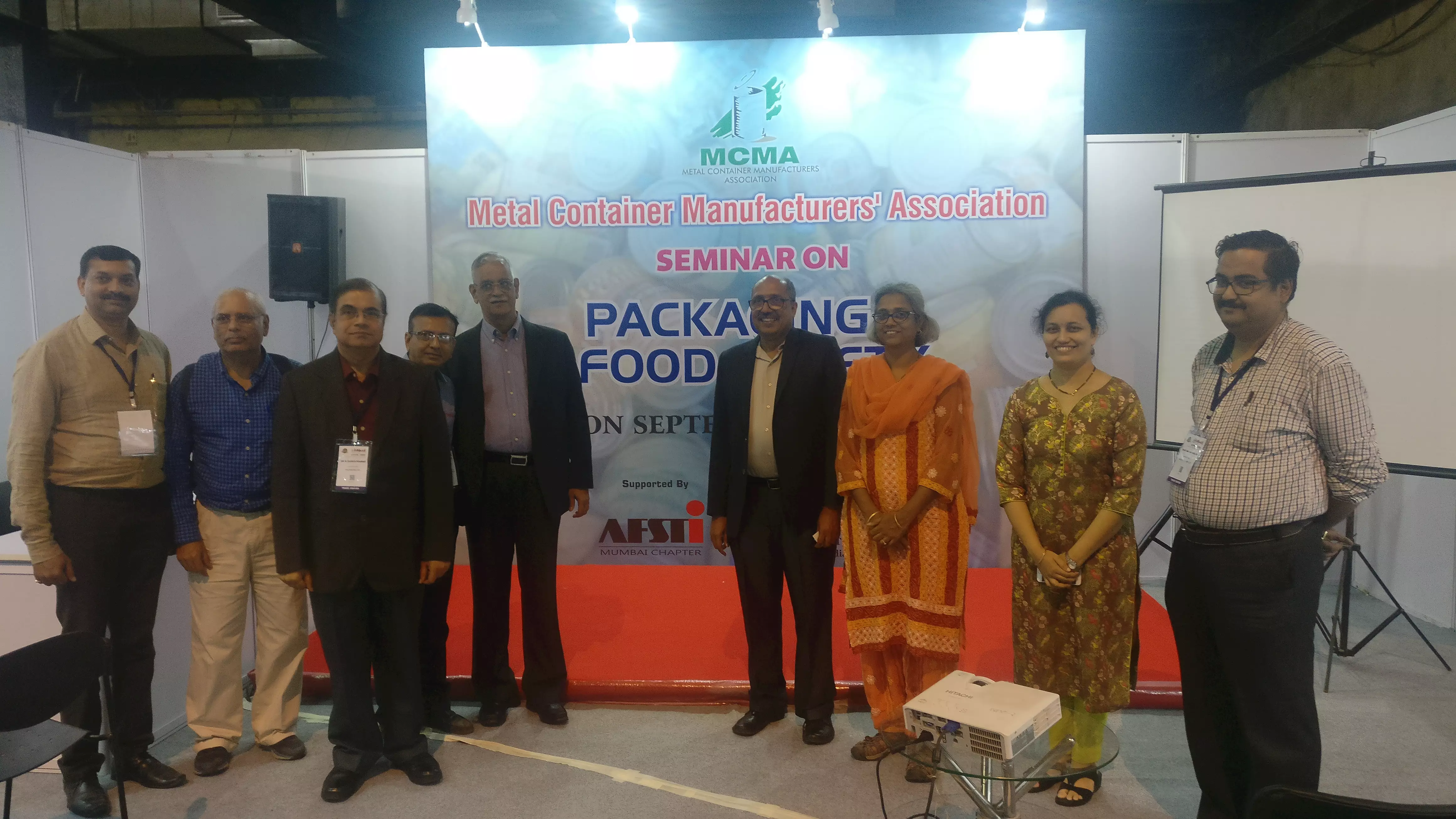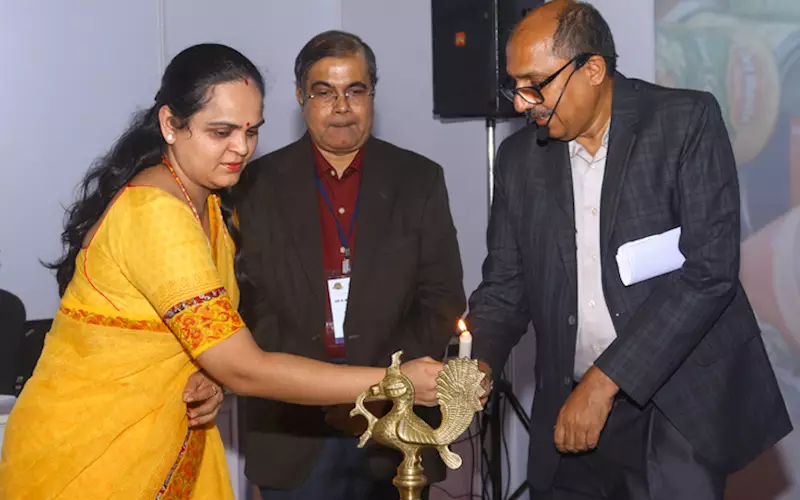MCMA hosts seminar on packaging and food safety
The Metal Container Manufacturers’ Association (MCMA) hosted a seminar on packaging and food safety at the Bombay Exhibition Centre in Mumbai on 26 September 2019.
11 Oct 2019 | By Aultrin Vijay
The event was organised by MCMA’s Venu Ayyar, in a view, to promote metal containers as a 100% recyclable packaging material and highlight its functional advantages. Ayyar said, “India’s per capita consumption of tinplate has been low in comparison with countries such as China and Africa. However, our Prime Minister’s goal to eradicate single-use plastics by 2022 and the recent stringent norms issued by the Indian government has helped in boosting the tinplate demand.”
The event, which was supported by the Mumbai Chapter of Association of Food Scientists and Technologists India (AFSTI), gave a broader perspective to the topical issues related to plastic and how it has provided an opportunity for the metal packaging industry to step in.
In addition, the seminar enacted as a one-stop knowledge forum to understand the lifecycle of food packaging, and the recent advancements and regulations pertaining to it, through expert sessions from Bakul Rao and Narendra Shah of CTARA, IIT Bombay, and Priti Amritkar of Envirocare.

The event was organised by MCMA’s Venu Ayyar
According to a 2018 report in The Hindu, the recycling rate of plastics in India is 60% while that of metal containers is 20-25%, because in India the per capita metal packaging consumption is quite low. "As India has an incentivised system for waste collection at source, the number of materials recycled would be greater as compared to a country like the USA, where the non-recyclable waste directly goes to the landfill," said Bakul Rao.
Ashraf Chitalwala, director, Zarhak Steel, mentioned that the biggest loophole in India’s waste segregation system is the cost of segregating and sorting the plastics is more than manufacturing it. “So, why would someone be associated with any practices regarding such a system?” he said.
Chitalwala said that India has an even lower per capita cans consumption compared to Africa. However, he believes that major investments made by JSW Steel and the recent developments made by Tata Steel will improve the quality of tinplates manufactured in the country.
He concluded his session by stating, “Tinplate was the key packaging material for the last millennium, it is for the current millennium, and it will be for the next millennium as well."
Dr R Rangaprasad, business head, Packaging 360, highlighted the future of metal packaging and coatings with the help of market reports, which stated that the worldwide metal packaging demand is returning to growth. According to Rangaprasad, beverage cans, which holds 45% market share is affected by the failing sales of carbonated drinks, but it is benefiting from energy drinks and craft beers. He said, "Asia will remain the top-performing region in the global metal packaging market with an increase in value sales of 18%."
Rangaprasad also spoke on the merits of aluminium cans and its lifecycle. Further, he shed light on the key global trends regarding the decorative techniques used in the metal packaging industry, which has embraced digital printing to be ideal for shorter print runs and limited-edition products. “The consumers are looking for eye-catching colours and striking visuals. With the 360-degree canvas that the metal cans offer, there have been a lot of improvements on the visual aspect of the metal packaging products,” he added.

MCMA's Venu Ayyar felicitates Dr Sheetal Gupta, deputy director, FSSAI
Dr Sheetal Gupta, deputy director, FSSAI, discussed the regulatory affairs, with special reference to food and metal packaging. She said, "Every Food Business Operator (FBO) shall obtain the certificate of conformity issued by NABL-accredited laboratory against the regulations for packaging materials that are in direct contact with food."
Gupta provided clarity on FSSAI’s new packaging regulations, introduced in 2018. "Ensuring that the food packaging does not mislead the consumer and the articles of food satisfy the requirements and rules of production, processing, import, distribution and sale is vital," she added.
Narendra Shah shed light on an US-based study that indicated how the cost of packaging is decided. He said, “The cost of packaging cannot be more than 25% of the food product’s cost. While in the case of cosmetics, it can go up to 35%.”
Shah also gave a glimpse of the packaging milestones that have transpired over the years, right from 50 BC when glass blowing was developed to 1989, when flexible package metallisation was introduced.

The seminar was hosted at the Bombay Exhibition Centre in Mumbai
The last session of the event was hosted by Priti Amritkar of Envirocare and a member of AFSTI, who presented case studies of a can of mango pulp, baked beans in tomato sauce, and a research paper on ‘Leaching of elements from packaging material into canned foods marketed in India’ by Dr Jayashree Parkar. She said, “The way forward for a sustainable future is only possible if the packaging industry, consumers, FBO’s and regulatory bodies work together.”
She highlighted that unlike plastic materials for food packaging, there are no specific limits on the migration of metal materials in FSSR or EU, and the limits applicable to food commodities are inclusive of migration from metal containers.
Venu Ayyar of MCMA concluded the session with the vote of thanks.











 See All
See All